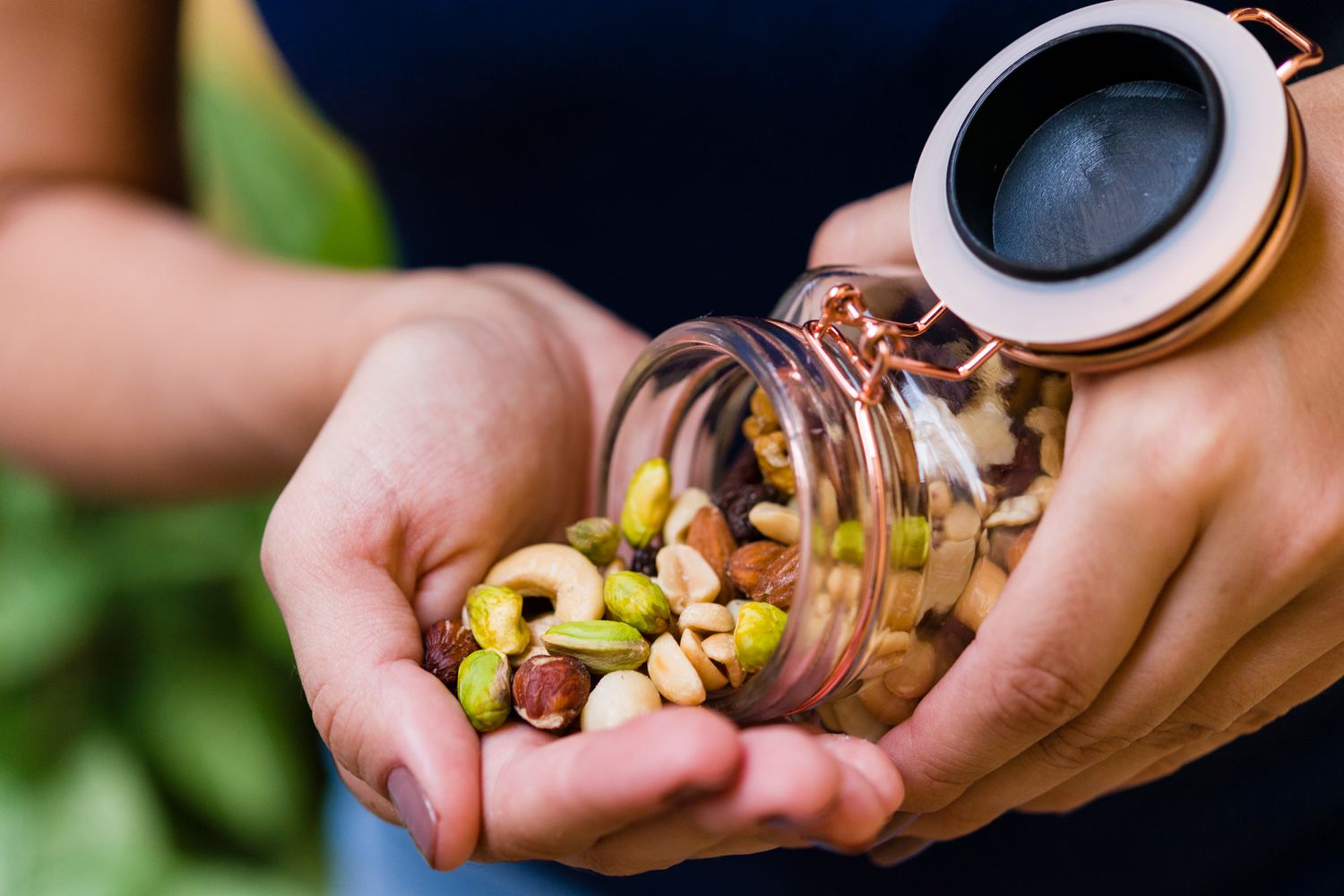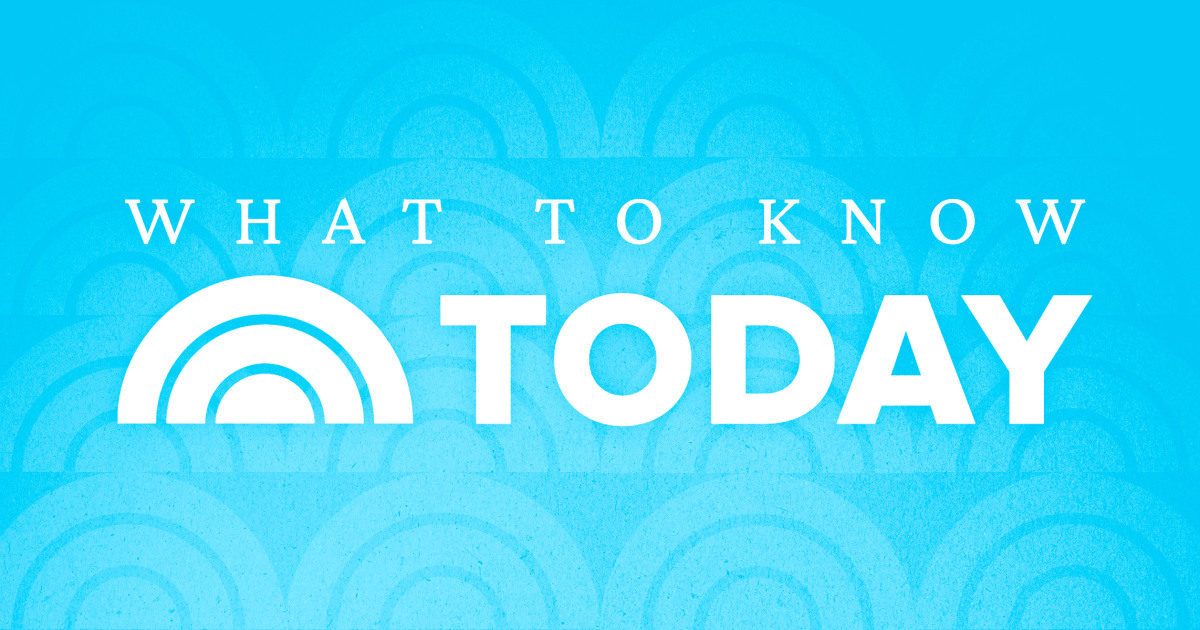Do you feel like you’re going “nutty” over nuts? One day, nuts are out due to their high fat and calorie content. Then, the next, they’re back in because—as it turns out—their fat is actually the good kind of fat.
Oy vey! If you’re wondering if eating nuts is bad for weight loss, we hear you loud and clear. But there’s good news! Nuts are a powerhouse of nutrition that can successfully fit into a balanced diet, even when weight loss is a goal. In fact, research has found that people who regularly nosh on nuts tend to have lower body fat and body weight than those who don’t eat nuts.
Nuts are a nutrient-dense food that packs protein, fiber and healthy fats. How does that help with weight loss? “Fats, protein and fiber are all associated with feelings of fullness,” says Elana Natker, M.S., RD, a registered dietitian and owner of Sage Leaf Communications. “A portion of nuts can make a great snack to get you through long stretches between meals and help prevent micro-nibbles that tend to happen when your snack isn’t satisfying enough.”
Let’s look beyond the calorie content and explore why these nutrients give nuts the street cred they deserve. We asked dietitians exactly why nuts bode well for weight loss—and if the type of nut you eat matters. Here’s what they told us.
Nuts Pack Protein
Plant-based protein is all the rage, and nuts are no exception. “Foods with protein help support satiety—that is, they help you feel full and stay full longer, which can prevent overeating. This helps with weight management,” says Rosanne Rust, M.S., RDN, a registered dietitian and creator of Chew the Facts. That’s not all. In addition to helping with weight loss, research has also found that high-protein diets improve cardiometabolic health by lowering insulin, LDL cholesterol and systolic blood pressure.
While some nuts, like peanuts, almonds, cashews and pistachios, are highest in protein, all nuts provide this satiating nutrient. However, nuts’ weight loss–supporting benefits aren’t just about their protein. Recent research shows that nuts’ protein works in tandem with their fiber, vitamins and minerals to deliver a package of weight loss–friendly nutrients.
They’re Filled with Fiber
Fiber is, quite possibly, most dietitians’ favorite “F” word. Why? For starters, fiber keeps you full, making it especially helpful for weight management and weight loss. It additionally helps control blood sugar and improves heart health.,,, And, surprise, surprise, nuts pack a hearty dose of it. While the fiber content of each nut varies, almonds and pistachios rank high on the list, packing around 3 grams per 1-ounce serving.,
They Provide Good-for-You Fats
Sometimes, you need to eat fat to lose fat. “Fear not the nut when it comes to a weight-loss program!” says Natker. “While it’s true that nuts are a source of dietary fat, the fats in nuts are actually healthy unsaturated fats that can help support heart health.”
Research agrees. One systematic review and meta-analysis found that people living with overweight or obesity who regularly ate nuts had lower levels of LDL cholesterol and triglycerides. No wonder the American Heart Association recommends eating small portions of nuts for better heart health.
Nuts Contain Mighty Micronutrients
Even though our bodies only require tiny amounts of micronutrients (a fancy name for vitamins and minerals), they play an enormous role in our overall health. “Nuts are excellent delivery machines for certain vitamins and minerals,” says Natker. These crunchy nuggets give you magnesium, potassium, zinc, iron and some B vitamins. They’re also a good source of hard-to-get vitamin E. This potent antioxidant works to help reduce oxidation and free radicals in the body, protecting against inflammation and the havoc it can wreak on your health.
Are Some Nuts Better Than Others?
All foods aren’t created equally, and the same goes for nuts. For instance, almonds contain 6 grams of protein per ounce versus 4 grams of protein per ounce of walnuts. But that doesn’t mean you should only eat almonds. In fact, variety is key to reaping the multiple nutrients provided by each nut.
“The nutrient mix you get will vary from nut to nut,” says Natker. For example, walnuts have the highest amount of the plant omega-3 fat alpha-linolenic acid of any other nut, she says. However, hazelnuts and pistachios are especially high in potassium, while pine nuts are rich in iron and zinc. “Ounce for ounce, walnuts, pecans, Brazil nuts and macadamia nuts tend to be higher in calories, but they can also provide nutrients that aren’t as readily available in other nuts,” she adds.
Tips to Incorporate Nuts in a Weight Loss–Friendly Meal Plan
“Nuts pack quite a nutrient punch, and a little goes a long way toward nutrient needs and weight-loss goals,” says Natker. Since nuts are calorie-dense, it’s important to plan ahead and keep portion control in mind. These dietitian-approved tips can help.
- Think Portion Control. A 1-ounce serving of nuts (roughly ¼ cup) clocks in around 150 to 180 calories, depending on the nut. Stock up on single-serving bags or designate a small dish that fits roughly one serving to keep portion sizes in check.
- Don’t Just Save Them for Snacks. Sprinkling some chopped nuts on your breakfast, lunch or dinner is an easy way to boost your meal’s nutrition and staying power. To make it easy, keep a small serving dish with a tablespoon handy to add nutrition to oatmeal, salad or pasta. Need ideas? We have dozens of recipes to get you started.
- Play Favorites. Why buy something that tastes boring and bland? “So many times I’ve seen people choose the “healthier” version of something only to have it be less appealing or satisfying, which can then lead to overeating as you try to find something that truly hits the spot,” says Natker. Choose the nuts that you’ll actually enjoy. If that means they have a little sodium, that’s OK. Many brands make lightly salted options that have 50% less sodium than their original counterparts.
The Bottom Line
Nuts often get a bad rap for their calories and fat. But they shouldn’t. Research reveals that nuts can be a healthy—and even helpful—part of a weight-loss or weight-management plan. That’s because they are filled with protein, fiber and healthy fats to help you feel full. Plus, they’re also rich in vitamins and minerals. However, unlike other healthy foods like fruits and vegetables, the more the merrier isn’t the best strategy when it comes to nuts. As healthy and delicious as nuts are, they are calorie-dense. So, as long as you keep portions small, you’re good to go!


